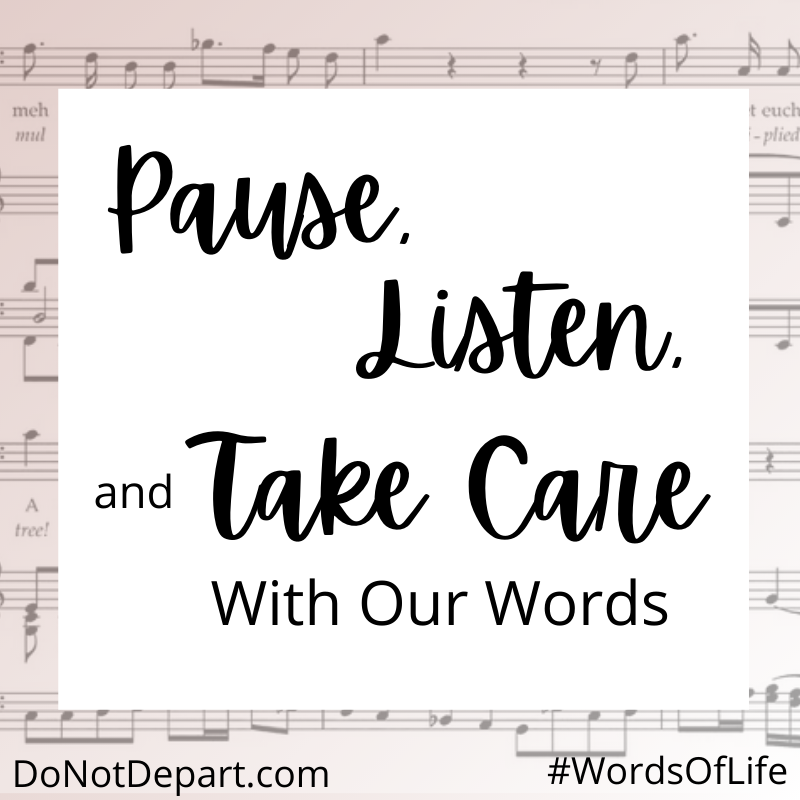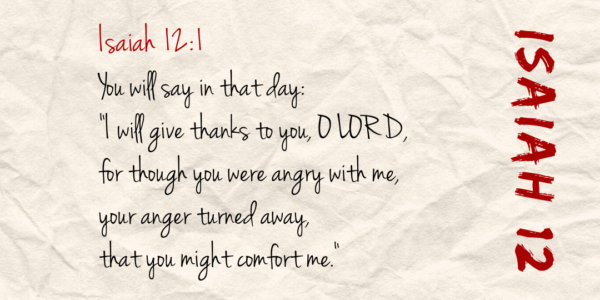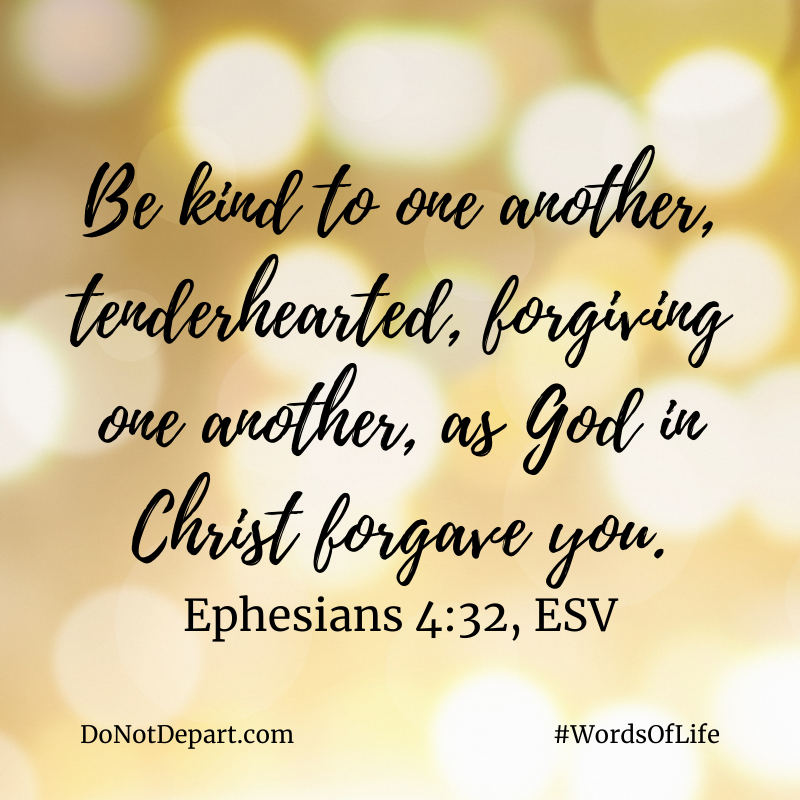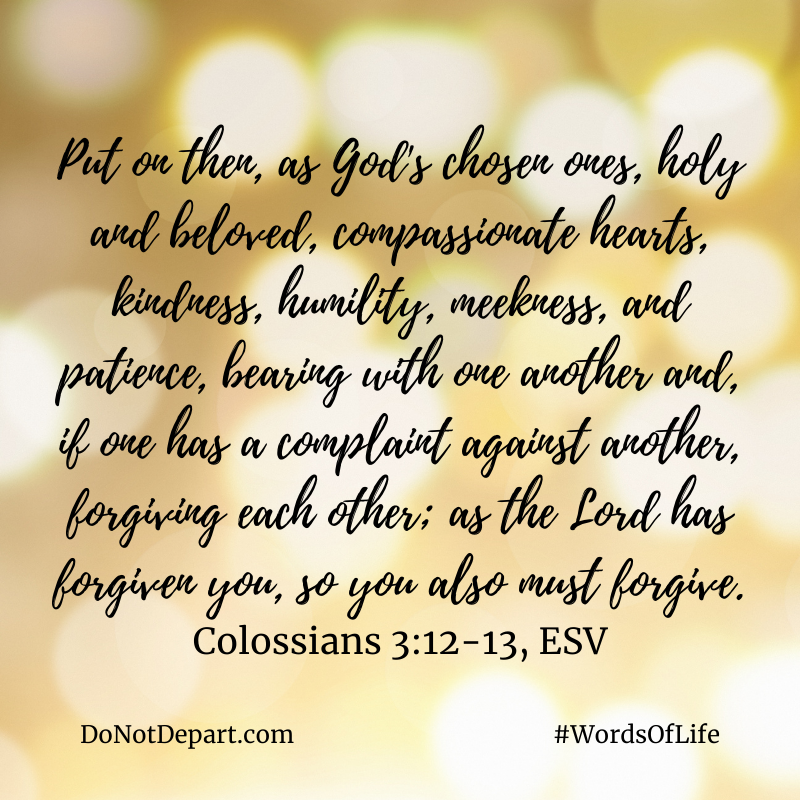Guest author Bethany Williams joins us in the last week of our series on Words of Life and Light, reminding us to pause, listen, and take care with our words.
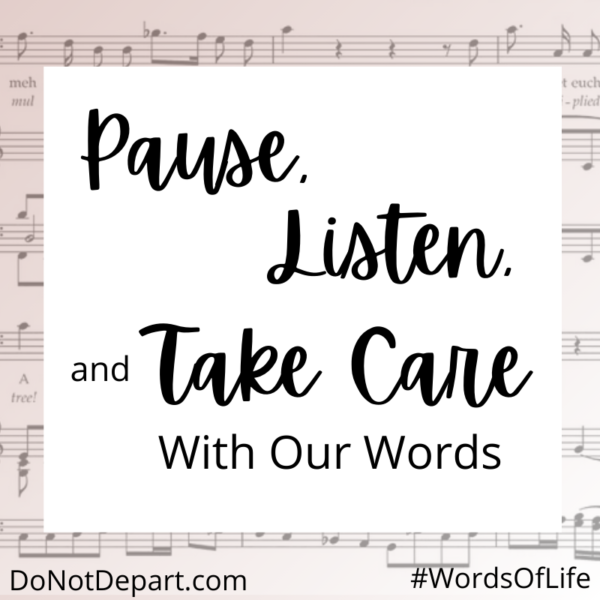
After fourteen years as a stay-at-home Mom, I went back to teaching this year. With excitement, I pulled my dusty teacher boxes out of the attic and found my old, trusty “First of the Year Talk.” While many things have changed in the classroom, that first talk still works. Once again, I told my new classrooms of students:
“Words have power; they truly do. The words we use matter. Words can be a tool for good or for evil. With words, we can build others up. We can go from ignorant to educated. We can persuade, heal, affect good change, and influence for good. Even the words we think about ourselves and words we use in our self-talk are powerful—for good or for harm.”
This introductory talk works in a classroom because it is an extension of what students have heard from adults all their lives: “Use your words. If you don’t have anything nice to say, don’t say anything at all. Think before you speak.”
Most of all, the talk works because it is a Biblical truth: “Death and life are in the power of the tongue, and those who love it will eat its fruits.” (Proverbs 18:21 NRSV)
High Standards
As has already been beautifully shared here this month, God created our world by speaking it into life. The Old Testament is full of stories of people blessing or cursing with their words. And the New Testament has example after example of how Christians are meant to use our words.
We know we have the high call to “Let no corrupting talk come out of [our] mouths, but only such as is good for building up, as fits the occasion, that it may give grace to those who hear.” (Ephesians 4:29, ESV, emphasis added)
James tells Christians, “You must understand this, my beloved: let everyone be quick to listen, slow to speak, slow to anger; for your anger does not produce God’s righteousness… If any think they are religious, and do not bridle their tongues but deceive their hearts, their religion is worthless.” (James 1:19-20, 26 NRSV)
Whoa. Talk about high standards! It’s hard enough to be careful with our words when things are going smoothly. How do we do this when things are really hard?
Two Reminders for Harder Days
As I write this, we’ve just finished a terrible week of hard freezes in Texas. Millions of people have been without power, heat, and water. We’ve been boiling the city water in our home, and we’re not sure what food will be available at the grocery store this week. This storm comes a year into the pandemic and on the heels of a very rough hurricane season. This week has been scary, humbling, and sobering. We find ourselves once again reminded of our dependence on God for daily provision. We’re thankful for the most important things—God, family, and basic needs met. And we are also very tired.
When things are challenging and I’m tired, it’s even harder for me to take care with my words. I can quickly give in to anger, “venting,” and unkind words.
Because of this blog post, I’ve been thinking hard about how to guard our tongues, and I am reminded of what many of us heard from our first choir or band directors as youth: “Rests (pauses of silence) are just as important as the notes, and you have to listen to hear your part in order to sing or play well.” I think it’s the same with our words in our everyday lives, and I’m finding two very simple practices help in dramatic ways.
Pause
First, I need longer pauses before I speak. I often need to physically take a deep breath before I talk, and I need the weekly pause of Sabbath worship and rest. Communal worship may be different these days due to the pandemic, but we are still each longing for a weekly Sabbath to join our church family and pray, study God’s Word, focus on the essential rather than the urgent, reflect, and be encouraged and restored. Without these weekly pauses from work and production, for worship and fun, my tongue quickly gets the better of me.
Listen for Your Part
Next, I need to listen well to the Holy Spirit in order to discern which conversations God is calling me to be a part of. We are surrounded by a culture of constant noise and opinions, with people clamoring for us to engage in numerous societal complaints, debates, and culture wars.
While the technological delivery of this noise may be a new method, this cacophony is not new. Jesus was constantly followed, pressed, and bombarded with problematic situations, divisive opinions, and questions. And even Jesus did not answer every question He was asked. Once, rather than answer a direct question, He paused and drew in the dirt. His pause and gentle response led a guilty woman’s accusers to recognize even their own need for mercy and to walk away.
We too do not have to verbally engage in every current societal debate or cultural hot topic, and it does no good for us to be constantly stirred up by every cause under the sun, even good causes. If we listen in prayer and study, we can each discern which conversations God is calling us to engage in, and we can focus on the work God sets before us each day. When we have clarity about which conversations and work we are called to, we can maintain healthy boundaries for our intake of news and social media, and we can focus our words to bring grace to those around us in our everyday life.
When we pause, when we are rested and restored, and when we have listened to hear our parts, we can live with joy, mindful of the privilege it is to speak life.
~~~~~~~~~~~~~~~~~~~~~~~~~~~~~~~~~~~~~~~~~~~~~~~~~~~~~~~~~~~~~

Bethany Williams is a teacher, encourager, advocate, and writer. She loves teaching high school Theology and focusing on her four children at home. She is happily a clergy spouse, adoptive and biological mom, and treasures a little knack for eliciting laughter in church small groups.
